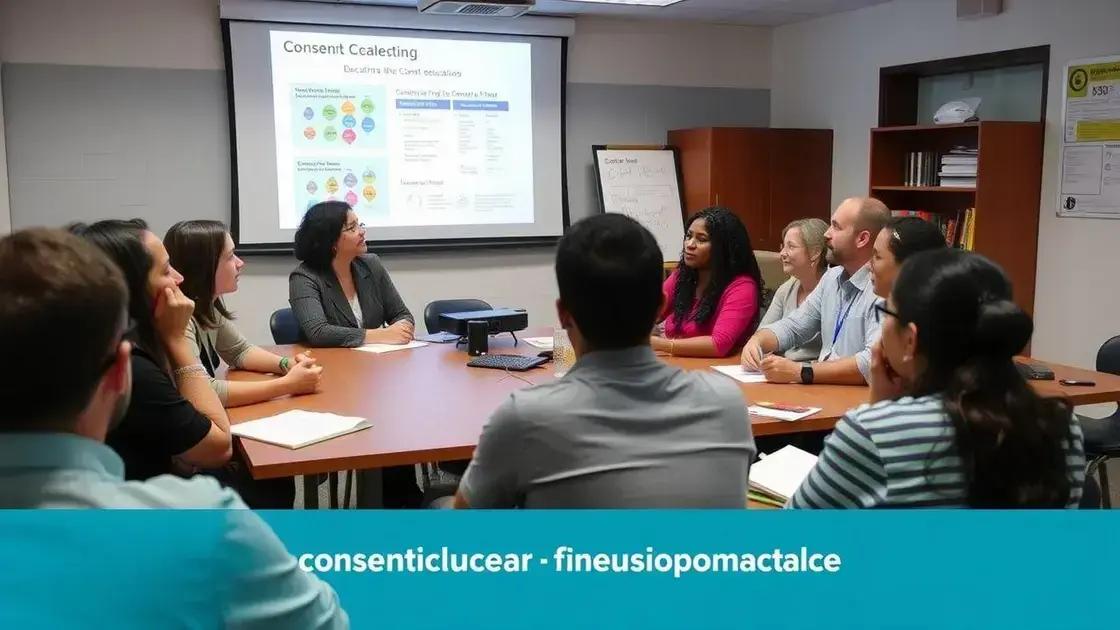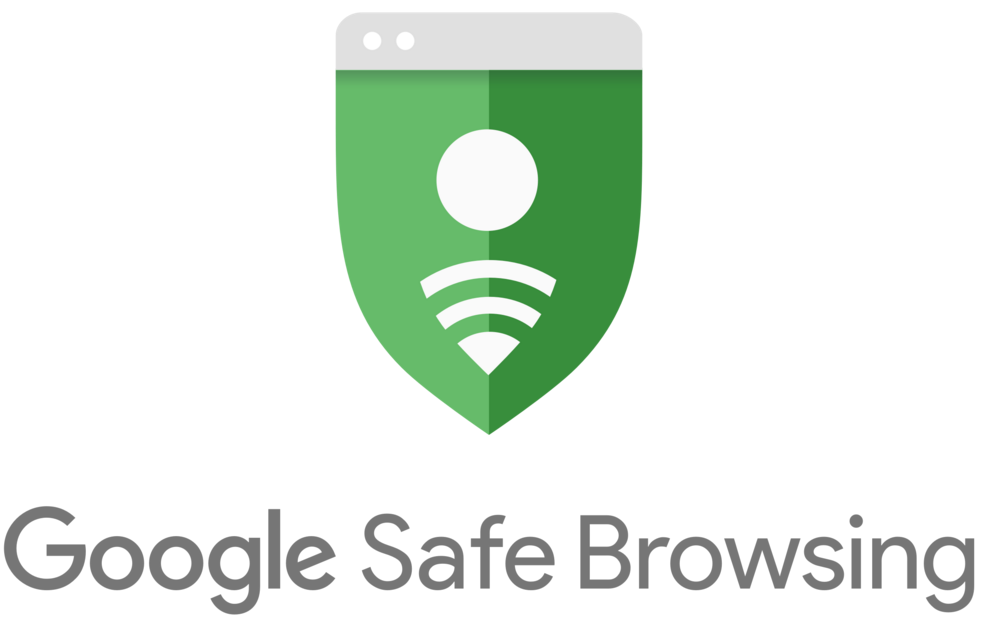Consent education legislation: understanding its impact

Anúncios
Consent education legislation is crucial for establishing clear guidelines on consent, fostering respect, and empowering students through comprehensive curriculum integration while addressing diverse student needs.
Consent education legislation plays a crucial role in promoting awareness about personal boundaries and respect among students. Have you ever wondered how these laws influence school environments?
What is consent education legislation?
Understanding consent education legislation is vital for fostering safer environments in educational settings. This type of legislation aims to educate students about personal boundaries and mutual respect. It emphasizes the importance of recognizing and respecting consent in all interactions.
Anúncios
Consent education legislation typically focuses on several key areas. It addresses the need for comprehensive curricula that teach students about consent from a young age. This can help to cultivate a culture of respect and awareness.
Key Goals of Consent Education Legislation
One of the primary goals is to ensure that students are informed about their rights and the rights of others. Additionally, such legislation often aims to reduce incidents of sexual violence and harassment.
- Promote understanding of personal boundaries.
- Encourage open discussions about consent.
- Foster a culture of mutual respect.
- Empower students with knowledge about healthy relationships.
Moreover, successful consent education initiatives involve collaboration among educators, parents, and the community. This collaborative approach enhances the effectiveness of educational programs. Engaging parents in discussions about consent can also bridge the gap between home and school, creating a unified message.
Anúncios
Incorporating consent education legislation into school curriculums often requires ongoing training for teachers. Educators need to feel equipped to discuss these sensitive topics effectively and confidently. They play a crucial role in shaping a safe school environment.
Furthermore, having clear guidelines and resources available for schools helps to establish consistent practices regarding consent education. This consistency ensures that all students receive the same essential information. The overall objective is to create a safer environment where every student feels valued and respected.
Ultimately, consent education legislation seeks to empower students. By educating them on the importance of consent, schools can help to instill a sense of accountability and respect for others. This education is not only fundamental for individual growth but also for fostering healthier communities.
Importance of consent education in schools

The importance of consent education in schools cannot be overstated. It provides students with essential knowledge about their rights and the dynamics of personal relationships. By integrating consent education into the curriculum, schools can help foster a culture of respect and understanding among students.
Effective consent education not only empowers students but also creates a safer environment. This type of education addresses misconceptions about consent, often highlighting that consent should be clear, voluntary, and mutual.
Key Benefits of Teaching Consent
When students learn about consent, they develop important skills that can prevent misunderstandings and promote healthy interactions.
- Encourages open communication regarding boundaries.
- Reduces incidents of sexual harassment and assault.
- Empowers students to advocate for their rights.
- Promotes respect for oneself and others.
Moreover, teaching consent helps students understand the implications of their actions. They learn to take responsibility for their behavior and the importance of respecting the choices of others. When students grasp these concepts early, they are more likely to carry these principles into adulthood.
The educational environment plays a crucial role in shaping attitudes toward consent. Schools that embrace consent education actively demonstrate their commitment to student safety and well-being. This not only benefits individual students but also cultivates a more supportive school community.
In addition, incorporating consent education can enhance students’ emotional intelligence. Understanding consent involves recognizing one’s own feelings and the feelings of others. This awareness can lead to healthier friendships and relationships throughout life, creating a ripple effect of positive interactions.
Beyond individual relationships, strong consent education can influence societal attitudes. As more students become educated about consent, they help create a culture that values respect and accountability. This shift can contribute to reducing the rates of violence and promoting a more equitable society.
Key components of effective consent legislation
Understanding the key components of effective consent legislation is essential for creating policies that truly protect individuals. Such legislation is designed to establish clear guidelines about the meaning of consent and its importance in personal interactions.
One major component is the definition of consent itself. Consent must be defined as a clear and voluntary agreement between parties. This definition ensures that individuals understand that consent can be withdrawn at any time, highlighting the importance of mutual agreement.
Essential Elements of Consent Legislation
Furthermore, effective consent legislation includes several essential elements that contribute to its success.
- Clear guidelines on obtaining consent.
- Educational requirements for students and staff.
- Reporting mechanisms for violations.
- Support resources for victims.
An important aspect is the requirement for educational programs. These programs should teach students about consent and healthy relationships. By integrating this education into the school curriculum, students can learn about the significance of mutual respect and communication.
Additionally, reporting mechanisms should be clearly outlined within the legislation. These guidelines help ensure that individuals feel safe to report incidents of non-consent without fear of retaliation. It is crucial that students know how to seek help and support when needed.
Another significant factor is the establishment of supportive resources for victims. Schools and communities must provide access to counseling, legal assistance, and advocacy services. These resources empower individuals and help them navigate the often complicated aftermath of consent violations.
Importantly, training for staff is also a vital part of the legislation. Educators must be equipped to handle discussions around consent and respond appropriately to incidents. This training is essential for creating a respectful and safe educational environment for all students.
Each of these key components works together to form a comprehensive approach to consent education. Collectively, they aim to create an atmosphere where students understand and respect personal boundaries, encourage open dialogues, and know how to seek help.
Challenges in implementing consent education

Implementing consent education in schools faces several challenges that can hinder its effectiveness. These challenges often arise from a lack of resources, cultural attitudes, and differing opinions on how to approach the topic.
One major challenge is the availability of educational materials. Many schools may not have access to up-to-date resources or training for teachers. This lack of support can lead to inconsistencies in how consent education is delivered.
Cultural Attitudes Toward Consent
Cultural perceptions about consent can also greatly influence how education is implemented. In some communities, there may be stigma or opposition to discussing topics related to consent, relationships, and sexual health.
- Some parents may resist curriculum changes.
- Students might feel uncomfortable discussing the topic.
- Cultural beliefs might conflict with educational goals.
- Public attitudes towards sexual education can vary widely.
Additionally, the lack of trained educators can create a significant barrier. Teachers need specialized training to handle sensitive discussions with confidence. If educators are hesitant or unsure about approaching the subject, it can lead to ineffective teaching of these crucial concepts.
Another obstacle is the diverse backgrounds of students. Each student brings their own set of beliefs and experiences, making it challenging to create a one-size-fits-all program. Educators must find ways to make the content relatable and inclusive for all students.
Furthermore, time constraints within the school day can limit the amount of focus that can be dedicated to consent education. With many subjects to cover, educators may prioritize other topics over consent, resulting in insufficient discussion.
Despite these challenges, it is essential for schools to recognize the importance of addressing them. Overcoming these barriers is crucial for successfully implementing consent education and ensuring that all students receive the necessary knowledge and skills to navigate their relationships respectfully.
Impact on student awareness and behavior
The impact on student awareness and behavior due to consent education is immensely significant. By teaching students about consent, schools help foster a deeper understanding of personal boundaries and respect. This awareness is crucial for developing healthy relationships.
Students who receive consent education are more likely to recognize the importance of communication in their relationships. They learn that consent is not just a one-time agreement but an ongoing conversation. This understanding can lead to more respectful interactions among peers.
Positive Changes in Behavior
As students become more aware of the principles of consent, we often see positive changes in their behavior.
- Increased respect for personal boundaries.
- Enhanced ability to communicate openly about feelings.
- Reduction in incidents of harassment and bullying.
- Greater empathy towards others’ experiences.
Additionally, when students feel empowered to assert their boundaries, they are more likely to stand up against inappropriate behavior. This creates a ripple effect within the school environment, as students support each other in maintaining a culture of respect.
Moreover, consent education plays a crucial role in helping students navigate complex social situations. With a solid foundation in understanding consent, they feel more confident in addressing uncomfortable situations and reporting them when necessary.
Studies show that schools implementing comprehensive consent education programs see a notable decrease in reports of sexual harassment and violence. As students learn about their rights and the rights of others, they begin to change societal norms within their peer groups. This shift not only benefits individual students but also contributes to a safer school environment overall.
As the culture around consent becomes more ingrained, students begin to advocate for themselves and others. This advocacy fosters a sense of community and support, encouraging students to engage in discussions about consent and relationships.
Future trends in consent education policies

The future trends in consent education policies are evolving as society becomes more aware of the importance of teaching consent in schools. These trends reflect changes in cultural attitudes, technological advancements, and a growing emphasis on mental health and well-being.
One emerging trend is the integration of consent education into broader health and wellness programs. Schools are recognizing that consent education cannot be taught in isolation. It must be part of a comprehensive approach that includes discussions about relationships, communication skills, and emotional intelligence.
Enhancing Training for Educators
As more focus is placed on consent, training for educators is expected to improve significantly. Ongoing professional development will equip teachers with the skills necessary to handle sensitive topics and foster open discussions.
- Workshops on effective communication strategies.
- Resources for addressing diverse student needs.
- Training in trauma-informed practices.
- Collaboration with mental health professionals.
Moreover, technology is playing a significant role in shaping future consent education policies. Digital platforms and apps are being developed to provide interactive and engaging ways for students to learn about consent. These tools can offer real-life scenarios and role-playing opportunities, making the learning experience more relatable and impactful.
Another trend is the move toward inclusivity in consent education. Policies are increasingly being designed to reflect the diverse experiences of all students, ensuring that the curriculum addresses a variety of perspectives, including those related to different sexual orientations and identities. This inclusivity helps create a learning environment that respects and recognizes each student’s unique experiences.
Furthermore, schools are expected to establish stronger partnerships with parents and the community. Engaging families in consent education discussions can extend learning beyond school and encourage supportive home environments. Workshops and information sessions for parents could help them reinforce these concepts at home.
As the conversation around consent continues, we can anticipate that schools will adopt more evidence-based approaches. Research will guide the development of curricula that are not only effective but also relevant to the current climate. This focus on data-driven policies will ensure that consent education meets the needs of students.
FAQ – Frequently Asked Questions about Consent Education
What is consent education?
Consent education teaches individuals about the importance of mutual agreement in relationships and personal boundaries.
Why is consent education important in schools?
It is important because it helps prevent sexual violence, promotes respect, and empowers students to communicate openly about their boundaries.
How can technology be used in consent education?
Technology can provide interactive learning experiences through apps, videos, and online resources that engage students in discussing consent.
What role do parents play in consent education?
Parents can reinforce the lessons learned at school by discussing consent and boundaries at home, creating a supportive environment for their children.







